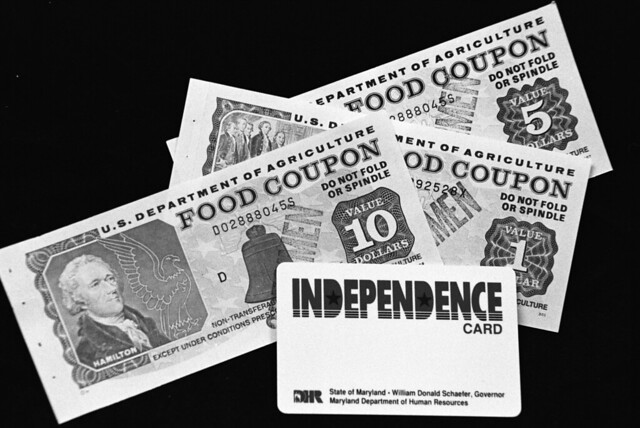Add a new chapter to the US Farm Bill debate – which seems to further complicate the prospect of ever coming to a conclusion.

Image by USDAgov, via Flickr CC.
After the huge disagreements between the Republican-dominated House and Democrat-dominated Senate on the nutrition program versus subsidy expenditures and the consequent divorce of the two issues in legislation, the House has now decided on its suggestion on what to do with SNAP (the Supplemental Nutrition Assistance Program, formerly known as the food stamp program). Remember that the original debate was over $4 billion (Senate) versus $20 billion (House) of cuts? Well, House Republicans upped their ante and on Thursday passed a bill that would cut not 4, not 20, but $40 billion (over 10 years) from SNAP.
$40 billion. 5% of the overall SNAP budget.
This would eliminate food stamp assistance for 3.8 million poor Americans by next year and cut around 14 million participants from the program by 2023, many of which would be plunged into food insecurity.
Emotions ran high during the debate over the measure. One of Massachusett’s Democratic Representatives, James McGovern, was quoted as saying that
“It’s a sad day in the people’s House when the leadership brings to the floor one of the most heartless bills I have ever seen. It’s terrible policy trapped in a terrible process.”
The Bill also added work requirements, making it obligatory for adults between 18 and 50 without minor children to find a job or to enroll in a work-training program in order to receive benefits, and restricting the time that such applicants would be able to receive benefits to 3 months. According to the House Speaker, John Boehner,
“This bill makes getting Americans back to work a priority again for our nation’s welfare programs.”
This, of course, presupposes that there are enough jobs in the relevant field for the people in question to simply get back to work and stop relying on the government’s welfare programs.
According to the U.S. Census Bureau, the SNAP program had “kept about four million people above the poverty level and had prevented millions more from sinking further into poverty” during the recent recession. It currently helps 47 million Americans to afford their weekly food basket.
The White House responded on Friday, ensuring that it would veto the bill, and the Senate leadership assured that it would not pass on their floor either.
Thus, as Debbie Stabenow, the chairwoman of the Senate Agricultural Committee phrased it, the whole initiative and back-and-forth could be considered as
“a monumental waste of time”.
Time that both U.S. farmers and poor consumers don’t really have.
0 thoughts on “"The Most Heartless Bill"”